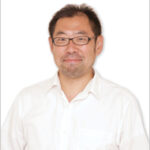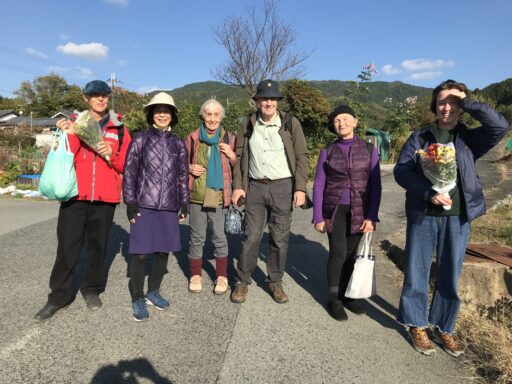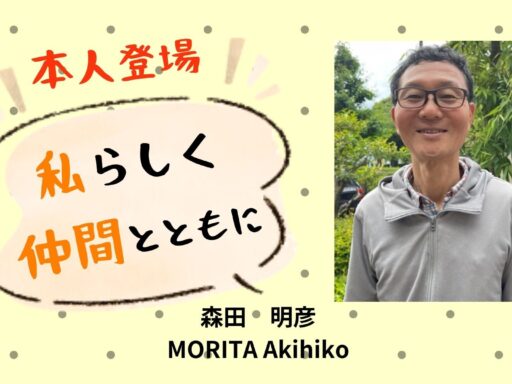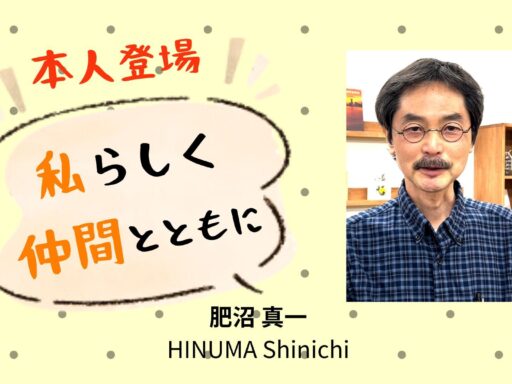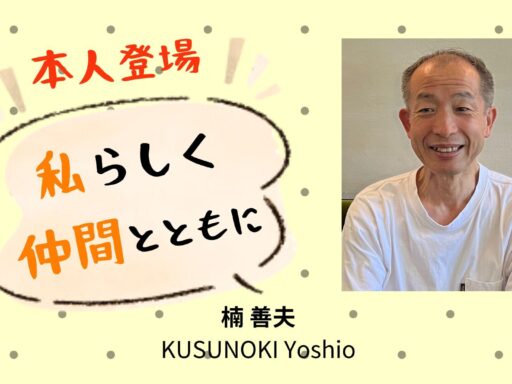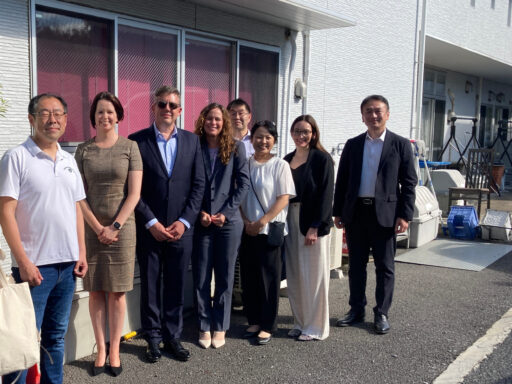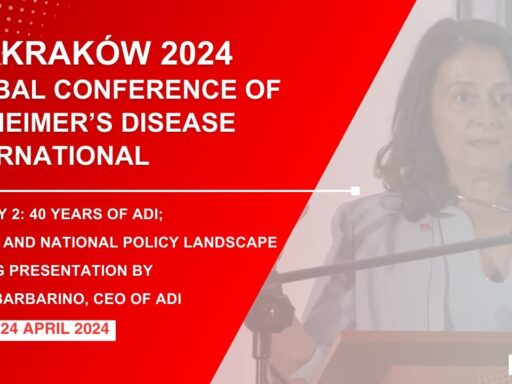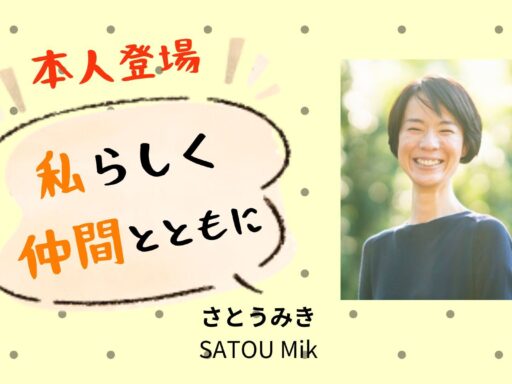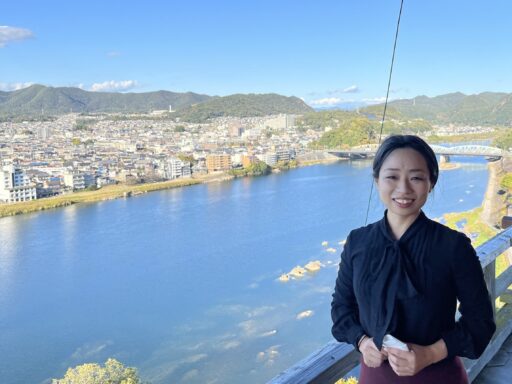Alzheimer’s Association visited a care service in Japan
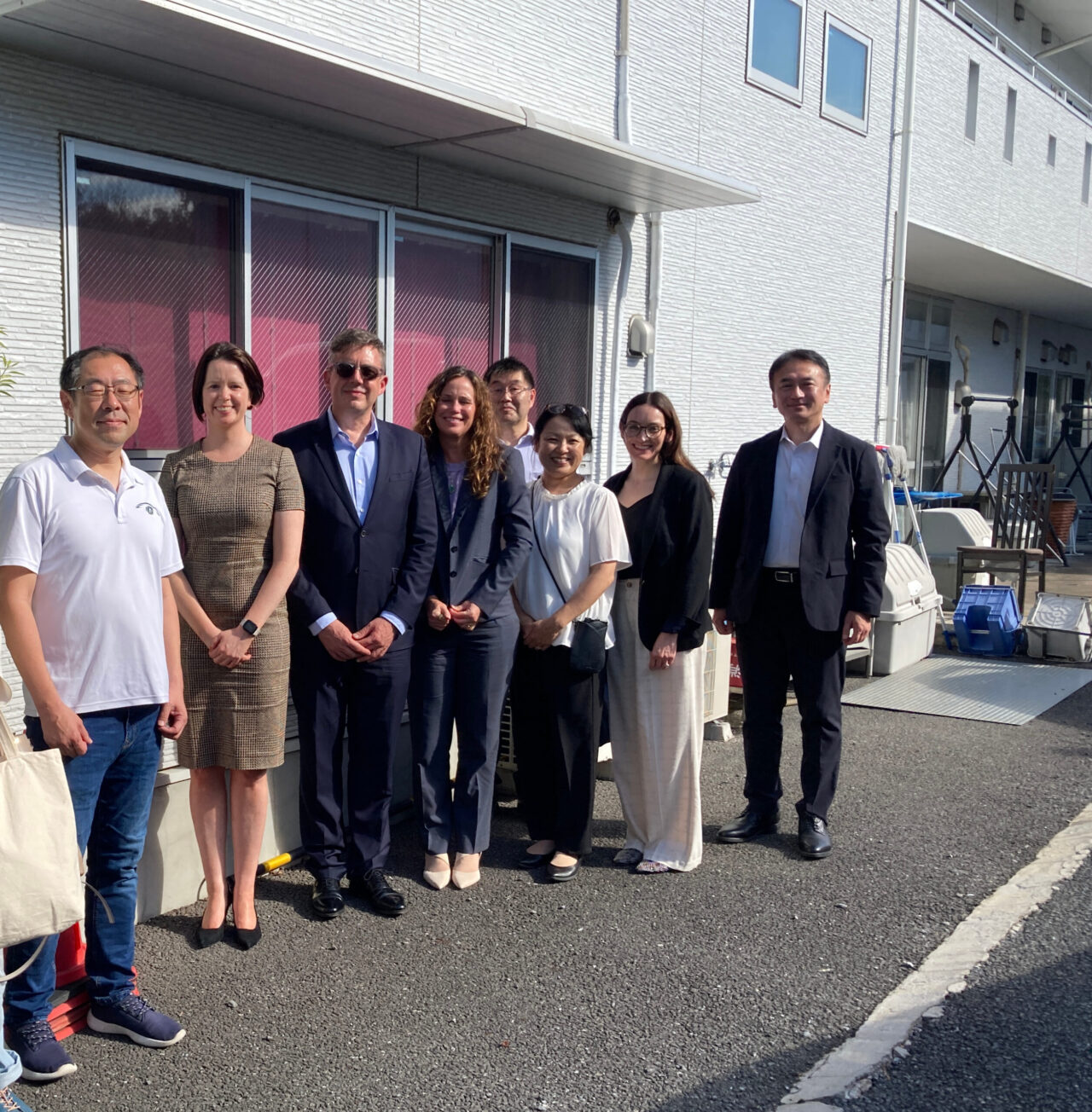
On the afternoon of Tuesday 17 September 2024, Dr Joanne Pike, CEO of the Alzheimer’s Association of America*, Dr Claire Sexton of the Alzheimer’s Association and Mr. Lenny Shallcross of the World Dementia Council (WDC) visited Jasmine Ougi, a small multifunctional at-home care facility in Adachi, Tokyo.
The visit of the three members is part of the Advancements series of the AAIC (Alzheimer’s Association International Conference), one of the world’s largest international conferences in the field of dementia. The AAIC Advancements: Modernising Diagnosis was held in Tokyo from 18 (Wed) to 19 (Thu) September 2024. Prior to the sectional meeting, the participants visited a dementia care setting in Japan.
In Japan, long-term care insurance was institutionalised in 2000. Still, there are challenges with dementia care, including enabling older people to live as independently as possible and community rehabilitation to prevent them from becoming seriously ill. Small-scale multifunctional at-home care was created as a service to address these issues. The term ‘small-scale’ refers to the scale of the service, with a registered capacity of 29 people and a daytime capacity of 18 people. On the other hand, ‘multifunctional’ means that services such as day care, home visits and overnight stays are provided 24 hours a day, 365 days a year (See Case study: Developing comprehensive community care in Japan – urban planning implications for long term dementia care).
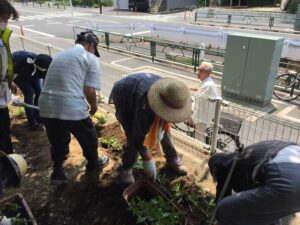 Dr Baba, Director of Jasmine Ougi, introduced activities such as planting flowers in the local park where the individuals under long-term care live and hiring a commuter bus to go shopping as rehabilitation activities that can be carried out even if the individual has dementia (See Effects of Adachi Rehabilitation Programme on older adults under long-term care: A multi-centre controlled trial). He also shared his strong belief that people should be as independent as possible and continue to live safely in their familiar neighbourhoods, even when living in a residential/nursing home for older adults.
Dr Baba, Director of Jasmine Ougi, introduced activities such as planting flowers in the local park where the individuals under long-term care live and hiring a commuter bus to go shopping as rehabilitation activities that can be carried out even if the individual has dementia (See Effects of Adachi Rehabilitation Programme on older adults under long-term care: A multi-centre controlled trial). He also shared his strong belief that people should be as independent as possible and continue to live safely in their familiar neighbourhoods, even when living in a residential/nursing home for older adults.
The participants initially wanted to visit a ‘village where people with dementia live’ in Japan. However, by observing dementia care provided in a homely atmosphere in a familiar neighbourhood, and by actually interacting with the individuals with a smile, even if they did not speak the same language, they were able to get a feel for the comprehensive community care in Japan, where several people and the local community support each other so that the people with dementia and their families who care for them do not fall into loneliness. The participants were also able to get a feel for Japan’s comprehensive community care, in which multiple people and communities support each other so that people with dementia and their families do not feel alone.
*Alzheimer’s Association (AA) in the USA: the parent organisation of the AAIC and the world’s largest organisation dedicated to dementia care, support and research.
